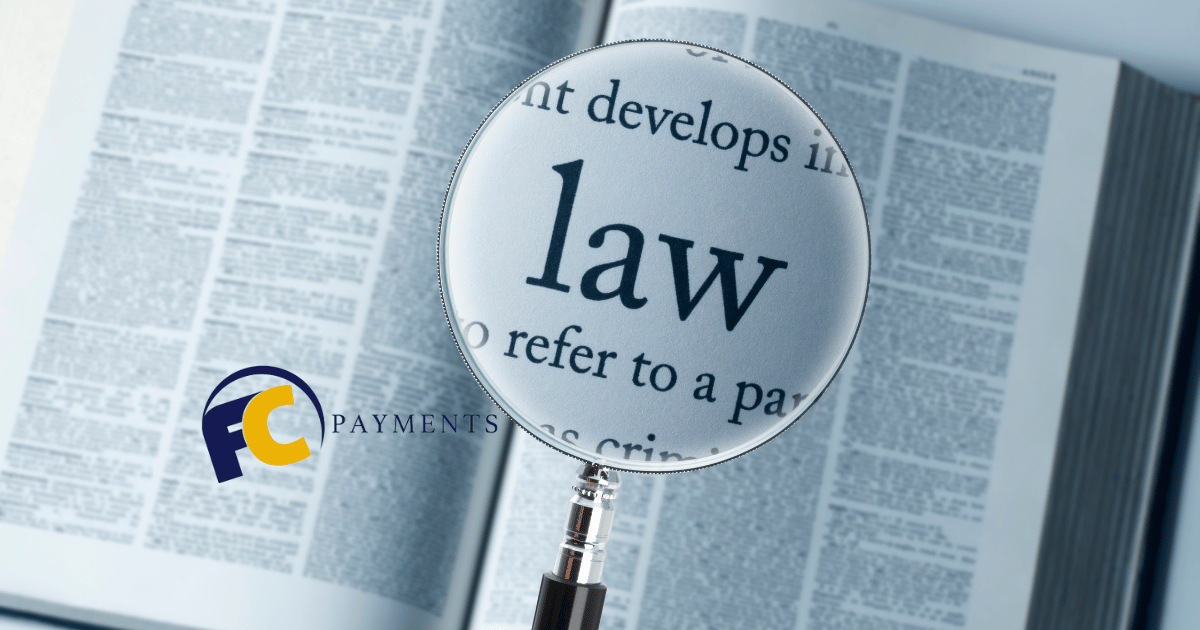
Chargeback Laws in Florida
Chargebacks are a big headache for entrepreneurs. Aside from losing money, relationships can also be ruined and credibility may be questioned just because of a single purchase. In fact, too many chargebacks could get you blacklisted.
But chargebacks are also created by states like Florida to protect the interest of consumers, especially from credit card fraud, scams, and other unlawful acts.
In the vibrant tapestry of Florida’s business landscape, the palm trees stand tall, just as businesses do amidst the challenges they face. Among these challenges, navigating the intricacies of chargebacks can feel like trying to find a needle in the Everglades.
Yet, understanding these laws becomes crucial for high risk merchants. Imagine running a prosperous orange grove, symbolizing your thriving business. Yet, every time a customer claims an orange was bad and wants their money back, the entire basket is jeopardized. These claims, in the realm of your business, are what we know as chargebacks. So, whether you’re an entrepreneur or consumer, here are some of the things that you need to know about the chargeback laws in the state of Florida.
Quick Summary
- E-commerce Landscape: Drawing parallels with Florida’s dynamic coastline, the e-commerce realm faces highs and lows, with chargebacks being significant challenges for high-risk merchants.
- Understanding and Differentiation: Merchants need clarity on chargeback mechanisms, the difference between chargebacks and refunds, and time-sensitive processes to effectively navigate this domain.
- Digital Platforms and Impact: Modern platforms, like PayPal, drive e-commerce but come with unique challenges. Multiple chargebacks can ripple across a business, underscoring the importance of effective management and preparedness.
Understanding Chargebacks and Their Impact
Chargebacks, as seen in our allegory, aren’t just about a returned orange. They depict a mechanism where a consumer disputes a transaction. As a high risk merchant, knowing the fine lines of these processes becomes essential. Dive deep into the intricacies by exploring “Can a Chargeback be Denied?”.
However, what if these so-called “bad oranges” become frequent? The basket, or your merchant account, faces suspension. The balancing act of managing chargebacks can be understood in the article: “How Many Chargebacks Account for Suspension?”
Fraudulent Use of Credit Cards

As a consumer, it’s very important to be aware of card skimmers that will scan your card and make a copy of it to use for unauthorized purchases. As a business owner, you have to be vigilant with credit card purchases and ask for identification if you can in order to avoid unknowingly authorizing illegal purchases using stolen credit cards that could result in a chargeback.
Negative Option Scheme

When customers see these charges on their credit card statement, they’re going to file a chargeback complaint instantly.
Florida chargeback laws actually cover this since the Federal Negative Option Rule states:
“Sellers must clearly and conspicuously disclose certain information including how many selections you must buy, how and when you may cancel your membership, how to notify the seller when you do not choose an item, how postage and handling are charged, and how often you will receive the announcements.”
Prevention: The Best Offense
In Florida, as the sun shields us from darkness, preventing chargebacks can shield businesses from unexpected losses. Knowledge becomes your sunscreen here. Equip yourself with a trove of “Chargeback Prevention Tips” for the best protection.
The Chargeback and Refund Dichotomy
Remember the oranges? Imagine a situation where instead of returning a single bad orange, someone gives back the entire basket. That’s the difference between chargebacks and refunds. Unravel this distinction further with the enlightening piece on “Chargebacks vs. Refunds: Credit Card Chargeback Protection with Refund”.
Timelines: A Critical Factor
The ticking clock of chargeback laws in Florida has significant consequences. It’s like the time it takes for an orange to ripen. Wait too long, and you might lose the opportunity. Discover more about this timeline in the write-up: “How Long to Dispute a Chargeback?”.
Navigating Chargebacks with Modern Platforms
Platforms like PayPal usher businesses into the digital age. Yet, they come with their own set of challenges. For merchants wanting clarity on this front, “Chargebacks on PayPal” serves as an enlightening read.
The Domino Effect of Chargebacks

In conclusion, understanding the chargeback laws of Florida represents more than just a legal necessity. It stands as a compass, guiding businesses through the maze of high risk merchant challenges. As with every challenge, knowledge and preparation remain your best allies. Stay informed and let your business flourish like the abundant orange groves of Florida.
Full Summary

Complying will also help you protect your integrity as a business and keep your payment processing account.
On the other hand, if you’re the consumer, it pays to be more aware of your rights regarding chargebacks to not only save yourself from unwanted or unauthorized purchases but also to protect your personal data from scammers and other risks that could jeopardize your identity.
As a reputable credit card processing company, First Card Payments understands the chargeback laws in Florida and offers chargeback prevention tips for low-risk and high-risk businesses.
Related Reading
How Many Chargebacks Lead to Account Suspension
My interest in the financial world started to blossom in High School. However, my parents tell me I use to watch financial programs before the age of 5. So, I guess I was born with the Financial bug. In high school I was accepted into their Finance Academy, which I attended for 4 years. In addition to graduating high school, I accumulated a substantial amount of financial knowledge few people experience at such a young age. During which time, I won the State of Florida Stock Market Contest and I also finished in the top 100 in the CNBC stock market contest which had over 1 million participants throughout the country (including some of Wall Street’s elites) with a take home prize of $1 million. These achievements allowed me to be invited to many shows and events with top people in their fields of business from around the world.
No Comments
Sorry, the comment form is closed at this time.




